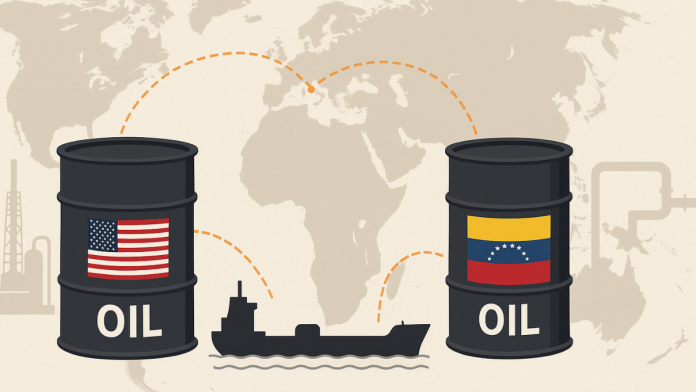A leading energy analyst has pointed out contradictions in the way the United States handles imports of oil and energy resources. The comments come at a time when Washington has been critical of some countries for continuing business with Russia, while it has quietly resumed energy imports from Venezuela and continues to receive uranium from Russia.
The expert noted that the United States has imposed high tariffs on certain imports from India due to its purchase of Russian oil. At the same time, Europe has continued to rely on Russian natural gas and liquefied natural gas (LNG), with little objection raised by Washington. Turkey also continues to import oil from Russia, with some of that refined oil later exported to Europe.
According to available data, US imports from Russia during the first five months of this year increased by more than 20%. Among these imports is uranium, a resource critical for fueling nuclear power plants in the country. Despite ongoing political tensions with Moscow, these purchases have not drawn the same level of attention as Russian oil sales to India and China.
Venezuelan network linked to Maduro and military named in U.S. terror sanctions
Tankers From Venezuela Arrive in US
Reports have confirmed that Venezuelan crude oil has reached American shores for the first time in years. This followed a new license issued by the US Treasury Department that allowed one major energy company to operate in Venezuela and bring its oil into the country.
Two tankers, carrying Venezuelan Boscan and Hamaca crude, reportedly reached US waters this month. The shipments were made possible through negotiations between the American company and Venezuela’s state-owned oil company. These deliveries mark a shift after years of strict sanctions that blocked such imports.
The license is limited in scope and allows operations under heavy restrictions. Yet, the return of Venezuelan oil into US refineries has raised questions about consistency in the enforcement of sanctions. While the United States maintains penalties on Venezuela’s oil sector, it has still permitted certain imports, citing energy security needs.
At the same time, officials in Washington have criticized India for buying discounted Russian crude, with accusations that Indian refiners are making extra profits by re-exporting petroleum products. The energy expert rejected those claims, explaining that India’s export levels of refined products have remained largely unchanged before and after the Russia-Ukraine conflict. Instead, trade flows have simply shifted, with India now supplying more refined products to Europe as the continent avoids direct imports from Russia.
178 global probes link Panama companies to Venezuelan corruption schemes worth billions
Changing Trade Patterns in Global Oil
The global oil market has been reshaped since the start of the conflict in Ukraine. Energy analysts explain that the changes are less about profiteering and more about how trade routes are being reorganized.
Before the conflict, India exported refined petroleum products mainly to Asian markets. Since Europe reduced its purchases of Russian petroleum products, Indian refiners have redirected some of their exports to Europe instead. At the same time, Asian demand is now increasingly met by new refineries in countries such as Kuwait, the United Arab Emirates, and Oman.
China has also emerged as the largest buyer of Russian oil but has not faced tariffs or penalties from Washington. This difference in treatment, combined with the quiet resumption of Venezuelan oil imports, has fueled debate about whether the United States is applying its trade measures consistently.
The energy expert emphasized that the issue is not only about Russian or Venezuelan energy. It is also about how different trade relationships are handled depending on political and economic priorities. With Europe, Turkey, China, India, and now Venezuela all playing key roles in global energy flows, the spotlight is once again on how the United States chooses to respond.


